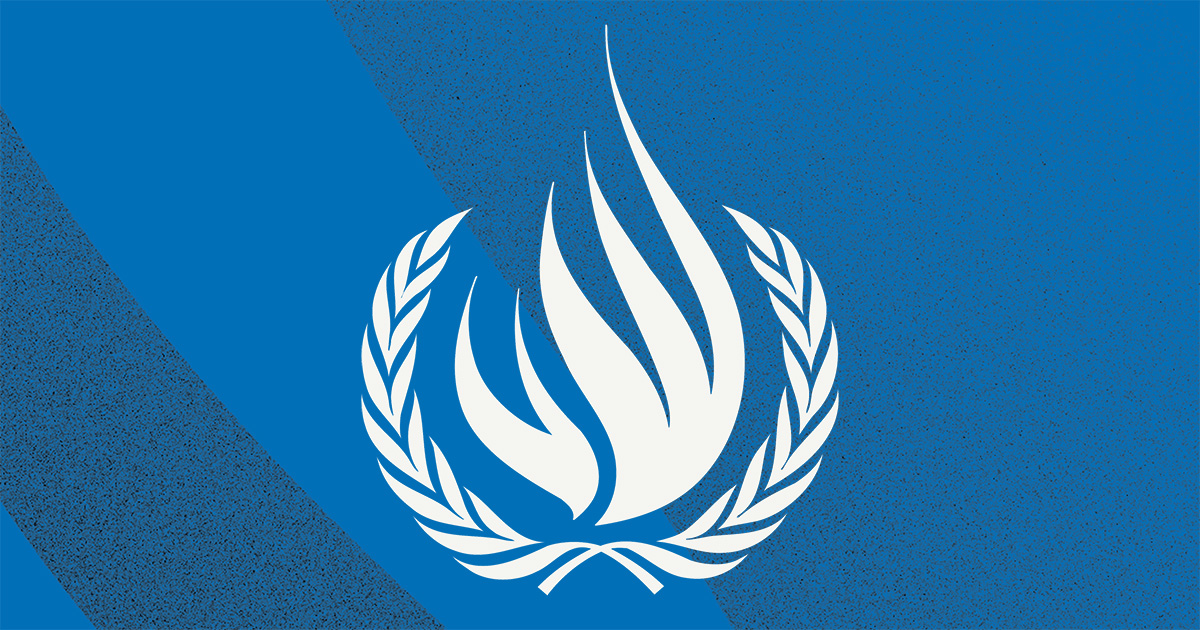
GENEVA (19 September 2022) – A UN expert today called on the United States to allow the shipment to Venezuela of spare parts for electron microscopes vital for detecting disease and conducting crucial medical research, saying the sanctions now blocking them are violating the rights of the Venezuelan people to health and life.
Electron microscopes are routinely used in medical diagnostics, but it has been nearly four years since two Venezuelan institutions ordered spare parts for theirs. Out of 14 electron microscopes in Venezuela made by a unit of the U.S. company Thermo Fisher Scientific, only three still work, and the company has been unable to get U.S. permission to export the necessary parts.
“Besides the legal obligation to comply with human rights law, the United States also has a moral obligation to the Venezuelan people to not deprive them of their basic human rights,” said Alena Douhan, Special Rapporteur on the negative impact of unilateral coercive measures on the enjoyment of human rights, calling on US authorities to either lift sanctions, which are legally dubious under international law, or to grant the corresponding export licenses rapidly.
“Electron microscopes are the only way to detect many diseases, so they are essential for appropriate treatment,” Douhan said. “The U.S. Government has an obligation under international human rights law not to harm the ability of Venezuelan doctors to diagnose illnesses correctly. Without accurate diagnoses and treatment, people can die.”
Electron microscopes are also used in research that advances medical knowledge, and research done in Venezuela on viruses like SARS-CoV-2, which causes COVID-19, has been vital for the entire world.
"International law protects the right of people everywhere to benefit from scientific progress, but this can’t happen when scientists are unable to continue their research," the expert said, noting the microscopes are covered by the Florence Agreement, an international treaty that commits participating countries, including the US, to facilitate trade in scientific goods.
Electron microscopes are also used in crime laboratories to examine evidence, and thus play a role in ensuring justice through due process rights that are guaranteed by the International Convention on Civil and Political Rights. “The United States has targeted some Venezuelan judges with sanctions to show its displeasure at how the Venezuelan justice system operates, but it shouldn’t use its other sanctions against Venezuela to undermine the system’s structural ability to provide justice,” Douhan said.
The right to enjoy the highest attainable standard of physical and mental health, as well as the right to pursue scientific research and to benefit from its results, are enshrined in the International Covenant on Economic, Social and Cultural Rights and are part of customary international law. These rights, together with the right to life, are also embodied in the Universal Declaration of Human Rights.
ENDS
Ms Alena Douhan (Belarus) was appointed as Special Rapporteur on the negative impact of the unilateral coercive measures on the enjoyment of human rights by the Human Rights Council in March 2020. Ms. Douhan has extensive experience in the fields of international law and human rights as, a Professor of international law at the Belarusian State University (Minsk), a visiting Professor at the Institute for International Law of Peace and Armed conflict, (Bochum, Germany) and the Director of the Peace Research Centre (Minsk). She received her PhD at the Belarusian State University in 2005 and obtained Dr. hab. in International Law and European Law in 2015 (Belarus). Ms. Douhan’s academic and research interests are in the fields of international law, sanctions and human rights law, international security law, law of international organizations, international dispute settlement, and international environmental law.
The Special Rapporteurs, Independent Experts and Working Groups are part of what is known as the Special Procedures of the Human Rights Council. Special Procedures, the largest body of independent experts in the UN Human Rights system, is the general name of the Council’s independent fact-finding and monitoring mechanisms that address either specific country situations or thematic issues in all parts of the world. Special Procedures’ experts work on a voluntary basis; they are not UN staff and do not receive a salary for their work. They are independent from any government or organization and serve in their individual capacity.
For more information and media requests please contact: Christophe Peschoux (christophe.peschoux@un.org) and Damianos Serefidis (damianos.serefidis@un.org)
For media enquiries regarding other UN independent experts, please contact: Renato Rosario De Souza renato.rosariodesouza@un.org or Dharisha Indraguptha (dharisha.indraguptha@un.org)
Follow news related to the UN"s independent human rights experts on Twitter @UN_SPExperts
Concerned about the world we live in?
Then STAND UP for someone"s rights today.
#Standup4humanrights
and visit the web page at http://www.standup4humanrights.org









